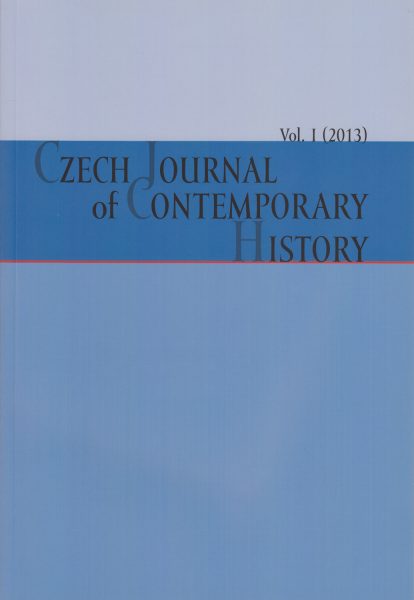Resistance, Collaboration, Adaptation… (Some Notes on the Research of the Czech Society in the Protectorate)
Resistance, Collaboration, Adaptation… (Some Notes on the Research of the Czech Society in the Protectorate)
Author(s): Stanislav KokoškaSubject(s): Social Sciences, Public Law, WW II and following years (1940 - 1949)
Published by: AV ČR - Akademie věd České republiky - Ústav pro soudobé dějiny
Keywords: Czech Society; public policy;
Summary/Abstract: In this article the author raises several theoretical questions connected to an insufficiently researched topic, Czech society in the Protectorate of Bohemia and Moravia (15 March 1939–8/9 May 1945). He considers, on the one hand, possible theoretical starting points, which he sees as residing in the thorough application of sociological approaches to historical research, and, on the other hand, the debates over the terms “collaboration” and “resistance”. The term “collaboration” (kolaborace) was imported into the Czech milieu, and is generally used to mean dishonorable work with, or for, the enemy. The author therefore sees the use of this term as being chiefly in research on public policy, in which the extant sources usually provide enough information to form a reliable picture of the individual actors and their motives. In this respect the author also refers to the views of some Czech historians who have already pointed out that when discussing the behavior of Czech society in the Protectorate it is extremely difficult to set a clear, universally valid boundary between resistance and collaboration. For actual research on Czech society in the Protectorate the author prefers semantically neutral terms, free of moralizing connotations. He sees inspiration in sociology, whose approaches enable the development of a more complex model than the hitherto widely held view of a society that lived in some kind of permanent dilemma between resistance and collaboration. Apart from research on everyday life in the Protectorate – the milieu which the individual actors moved about in –the author recommends exploring also the “extent of adaptation” (the way the actors accommodated themselves to the conditions of the new regime) and the“extent of identification” (whether the actors identified with the new regime and to what extent they considered it something unchangeable). From a comparison of both factors the author then deduces the actors’ basic attitude to the regime(positive, neutral, potentially hostile, hostile) and their basic modes of behavior (loyalty, law-breaking, opportunism, resistance). The “extent of identification” in particular constitutes the dynamic factor whose value was dependent on a whole range of circumstances. In researching Czech society in the Protectorate one must therefore consider other important topics, for example, the effect of Nazi and Allied propaganda, the responses in Czech society to the news about the course of the war, and, last but not least, fear, an integral part of Protectorate reality. To understand the behavior of Czech society in the years of the Second World War(and therefore its values and orientation at the time of Liberation), one must in historical research devote sufficient consideration to the elementary fact that this society found itself in the grip of a totalitarian regime and was consequently not operating on the principle of freedom of choice.
Journal: Czech Journal of Contemporary History
- Issue Year: I/2013
- Issue No: 1
- Page Range: 54-76
- Page Count: 23
- Language: English

